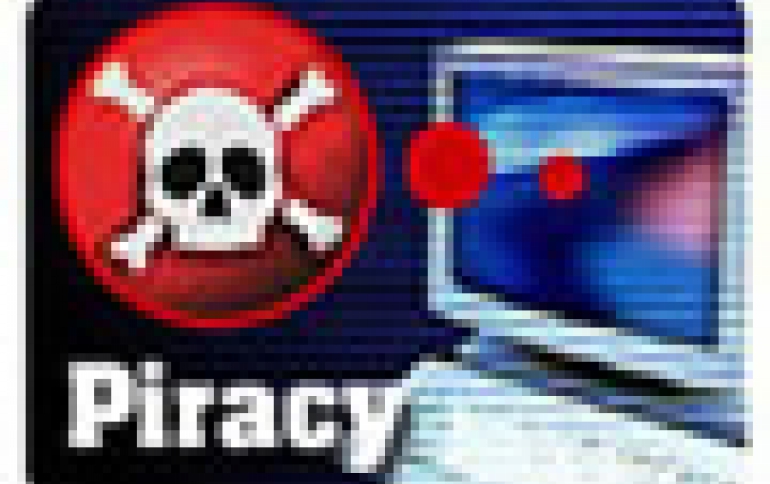
RIAA Lawsuit Campaign Losing Credibility
Five years after the Recording Industry of America (RIAA) began its massive litigation campaign against music fans suspected of sharing copyrighted music files over the Internet, the campaign has failed to get artists paid or reduce peer-to-peer (P2P) file sharing.
Meanwhile, the legal foundation of the campaign is being questioned by several federal courts.
The findings are part of EFF's Report on the file-sharing litigation in the last five years.
Since September of 2003, the recording industry has leveled legal threats against close to 30,000 American music fans. In a report released today, "RIAA v. The People: Five Years Later," the Electronic Frontier Foundation (EFF) presents an overview of the RIAA's litigation campaign and concludes that it is hurting music fans and artists alike, without making a dent in unauthorized file-sharing. The report notes increasing skepticism by courts, academics and state watchdog groups about the RIAA's investigation tactics and legal theories. For example, judges have repeatedly rejected the RIAA's "making available" theory, the notion that merely having a music file in a "shared" folder on a computer constitutes copyright infringement, even if no one ever copies the file. Just last week, a federal judge ordered a new trial for Jammie Thomas, found liable for more than $220,000 because the jury had been instructed erroneously that liability could be premised on this "making available" theory.
"If the RIAA wants to keep suing hundreds of people each month and collecting these huge settlements, it can't take shortcuts," said EFF Staff Attorney Corynne McSherry. "It's not enough to say the law 'could have been' broken and demand thousands of dollars to make the accusation go away. The recording industry must prove its case and show that infringement actually occurred."
EFF's report collects evidence that suggests that the lawsuit campaign has not reduced file sharing. Downloading from P2P networks continues unabated, while some people simply choose to share files in ways that are harder to monitor, like burning and exchanging CDs among friends. EFF continues to call on the RIAA to help artists get paid for their creative work by embracing a voluntary collective licensing program, which would collect a reasonable, regular payment from music fans in exchange for the right to share music freely.
"More than 30,000 Americans have been targeted for legal action by the recording industry without putting a single penny into the pockets of any artists," said EFF Senior Staff Attorney Fred von Lohmann. "At the same time, everyone agrees that P2P file-sharing is more popular than ever. The RIAA's litigation campaign arbitrarily punishes tens of thousands of people for what tens of millions are doing. It's futile and unfair. It is high time that the recording industry let fans pay them a reasonable fee for the P2P file sharing that we all know has become a fact of Internet life."
For the full report "RIAA v. The People: Five Years Later" is available at here. http://www.eff.org/wp/riaa-v-people-years-later
The findings are part of EFF's Report on the file-sharing litigation in the last five years.
Since September of 2003, the recording industry has leveled legal threats against close to 30,000 American music fans. In a report released today, "RIAA v. The People: Five Years Later," the Electronic Frontier Foundation (EFF) presents an overview of the RIAA's litigation campaign and concludes that it is hurting music fans and artists alike, without making a dent in unauthorized file-sharing. The report notes increasing skepticism by courts, academics and state watchdog groups about the RIAA's investigation tactics and legal theories. For example, judges have repeatedly rejected the RIAA's "making available" theory, the notion that merely having a music file in a "shared" folder on a computer constitutes copyright infringement, even if no one ever copies the file. Just last week, a federal judge ordered a new trial for Jammie Thomas, found liable for more than $220,000 because the jury had been instructed erroneously that liability could be premised on this "making available" theory.
"If the RIAA wants to keep suing hundreds of people each month and collecting these huge settlements, it can't take shortcuts," said EFF Staff Attorney Corynne McSherry. "It's not enough to say the law 'could have been' broken and demand thousands of dollars to make the accusation go away. The recording industry must prove its case and show that infringement actually occurred."
EFF's report collects evidence that suggests that the lawsuit campaign has not reduced file sharing. Downloading from P2P networks continues unabated, while some people simply choose to share files in ways that are harder to monitor, like burning and exchanging CDs among friends. EFF continues to call on the RIAA to help artists get paid for their creative work by embracing a voluntary collective licensing program, which would collect a reasonable, regular payment from music fans in exchange for the right to share music freely.
"More than 30,000 Americans have been targeted for legal action by the recording industry without putting a single penny into the pockets of any artists," said EFF Senior Staff Attorney Fred von Lohmann. "At the same time, everyone agrees that P2P file-sharing is more popular than ever. The RIAA's litigation campaign arbitrarily punishes tens of thousands of people for what tens of millions are doing. It's futile and unfair. It is high time that the recording industry let fans pay them a reasonable fee for the P2P file sharing that we all know has become a fact of Internet life."
For the full report "RIAA v. The People: Five Years Later" is available at here. http://www.eff.org/wp/riaa-v-people-years-later





















